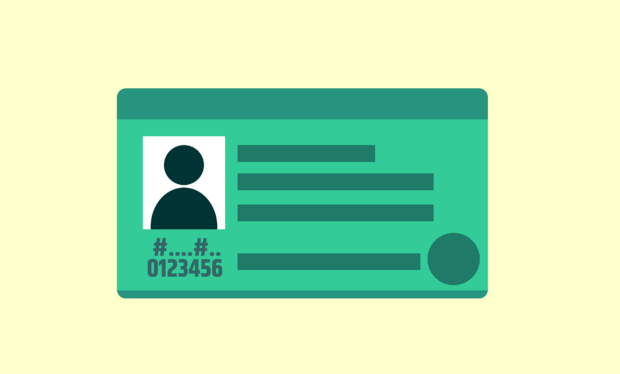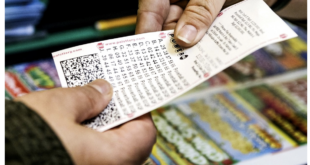In countries where online gambling is allowed, an individual must be of legal age to participate. In some cases, this equates to being 18 years of age, whereas in others, being 21 years of age is the bare minimum. Depending on the laws and regulations of the country you reside in, failure to comply can be a criminal offense punishable to the full extent of the law, so the matter is not to be taken lightly.
The burden of responsibility

Note that, when it comes to online gambling, the burden of responsibility does not fall on the individual’s shoulders alone. The mere act of allowing an underage person to gamble online could incur criminal charges. Due to this, online casino operators tend to go above and beyond to make sure that whoever signs up is of legal age to participate.
In concrete terms, before even being able to play a single round, the customer is asked to upload a proof of identity that clearly indicates their age. Note that, in certain countries, a parent or caregiver can allow them to participate, but the minor needs to obtain a written and signed permission from them. But either way, verification and proof will be necessary before letting that individual proceed to the next step.
The different approaches to identity verification
To prevent an underage person from gambling, different casinos may take a different approach despite having the same objective.
For instance, the very first step a player may be asked to take is to enter their birth information and their social security number. This allows the casino to double-check things on their end, and if the information provided doesn’t match up, that individual can be refused service.
Moreover, the requirement may be for players to upload scans of their personally-identifiable documents such as their ID card or driver’s license. In the event they’re unable to confirm the person’s age or suspect the player is attempting to falsify the information presented, they reserve the right to deny them entry onto the platform and suspend their account.
Before letting you play, an online casino will need to see some form of ID.

At the end of the day, fraud is fraud, so the casino may report such individual to the local authorities and they may follow it up with legal action against them.
Identity checks in the digital vs. the physical world

A traditional brick and mortar casino has it somewhat easier to identify and deny entry to individuals who are under the legal threshold of age to gamble. In case someone looks too young to enter the establishment, they are asked to show some ID or be turned away at the spot.
Online casinos, on the other hand, may find it hard to know who they’re dealing with simply due to the nature of the digital interaction (ie not being able to see your face). Therefore, it’s vital for them to perform additional checks with age verification software such as Idnow.io or asking for documents scans. To ensure maximum compliance, they may ask for both.
Should the parents be more actively involved?
Although we’re not living in the world of should be’s and this does not absolve anyone of the responsibility where one is due, the parents should certainly strive to do their part in preventing underage gambling.
To this extent, monitoring their child’s activities is key. Industry experts recommend using internet filtering software so parents can stay on top of what their child is doing online. This allows you to receive automated alerts whenever your child is browsing a page they shouldn’t be accessing and even block access to the problematic online content without having to lift a finger.
The way this works is through a pre-set filter that picks up on certain keywords that are present on the website or by whitelisting websites on an individual basis (different software offers different functionality). In general, internet filtering software incorporates some anti-tampering measures, so your child will need the master password to disable these filters or uninstall it.
What if the child finds a way around it?

If your kid is a clever one or very much into technology and IT (the younger generations tend to be quite computer literate), it possible for him or her to find a way around it and access online gambling websites. If nothing else, they could go to the friend’s house and do it. This, if course, is bound to create all sorts of problems for everyone involved, so you need to develop a response plan in advance.
The first step you should take if you catch your child gambling is to have an open conversation about it. The goal is to come to an understanding and conveying the message their behavior could create legal problems for people who haven’t done anything wrong. This is also the perfect opportunity to teach them the concept of empathy and placing yourself in other people’s shoes.
If nothing seems to stick, however, you should not hesitate to go straight to the operator and inform them about it. This will clearly demonstrate you don’t condone your child’s behavior and that you’re willing to work with the operator to revoke their privileges of accessing the platform. Of course, you may be asked to submit proof of your own identity in the process to establish yourself as their parent or legal guardian.
After that is taken care of, it’s your job to address the issue of gambling – kids can be quite rebelious these days and could dismiss your advice and try to sign up for other websites, so you need to dismantle it at the root level. If it’s a teenager you’re dealing with, teenage gambling addiction could be a relevant topic to learn more about. According to Ncpgambling.org, 4-5% teenagers aged between 12-17 have a gambling problem and 10-14% are prone to developing one.
If case you come to the conclusion that your teenager is displaying the signs of addiction, it might be time to escalate things and get professional advisors and therapists involved. See if there’s a hotline you can call – most countries should have one available 24/7.
Conclusion
Underage gambling is a persistent problem the industry operators need to deal with, and it affects everyone involved; the underage individual, the parents, and the key decision-makers. To make it manageable, it’s important to address it from many different angles, including screening, prevention, open discussion, and therapy. At the end of the day, there are certain rules that apply to everyone and following them is vital, especially if legal consequences can mount up as a result of failing to comply.
 Poker Players Alliance Casino & Gambling Articles 2024
Poker Players Alliance Casino & Gambling Articles 2024






